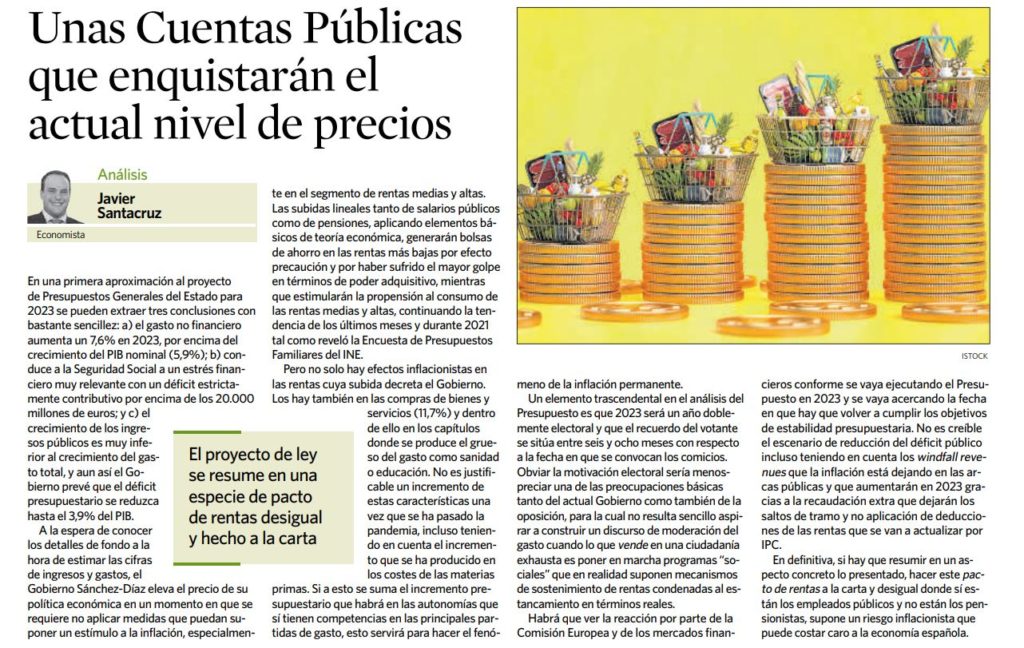By Javier Santacruz, Economist and Financial Analyst
Head of the Research Department at L’Institut Agricola
Article published in El Economista – 05/10/2022
In a first approach to the draft General State Budget for 2023, three conclusions can be drawn quite simply: a) non-financial expenditure increases by 7.6% in 2023, above nominal GDP growth (5.9%); b) it leads the Social Security to very significant financial stress with a strictly contributory deficit of more than 20 billion euros; and c) the growth of public revenue is much lower than the growth of total expenditure, and even so the government expects the budget deficit to be reduced to 3.9% of GDP.
While awaiting the background details when estimating revenue and expenditure figures, the Sánchez-Díaz government is raising the price of its economic policy at a time when it is necessary not to apply measures that could stimulate inflation, especially in the middle and high income brackets. The linear increases in both public wages and pensions, applying basic elements of economic theory, will generate pockets of savings in the lowest incomes due to the precautionary effect and because they have suffered the greatest blow in terms of purchasing power, while they will stimulate the propensity to consume in the middle and high incomes, continuing the trend of recent months and during 2021, as revealed by the INE’s Household Budget Survey.
But there are not only inflationary effects on incomes whose rise is decreed by the government. There are also inflationary effects on purchases of goods and services (11.7%) and, within this, in the chapters where the bulk of spending takes place, such as health and education. Such an increase is not justifiable once the pandemic has passed, even taking into account the increase in the cost of raw materials.

If this is added to the budget increase in the autonomous regions that do have competences in the main expenditure items, this will serve to make the phenomenon of inflation permanent.
A transcendental element in the analysis of the Budget is that 2023 will be a double election year and that voter recall is between 6 and 8 months before the date on which the elections are called. To ignore the electoral motivation would be to underestimate one of the basic concerns of both the current government and the opposition, for whom it is not easy to aspire to construct a discourse of spending moderation when what “sells” to an exhausted citizenry is to implement “social” programmes that in reality are mechanisms for sustaining incomes condemned to stagnation in real terms.
We will have to see how the European Commission and the financial markets react as the budget is implemented in 2023 and the date for meeting the budget stability targets approaches. The scenario of a reduction in the public deficit is not credible, even taking into account the “windfall revenues” that inflation is leaving in the public coffers and which will increase in 2023 thanks to the extra revenue that will be generated by the leap in tax brackets and the non-application of deductions for income that will be updated according to the CPI.
In short, if we have to summarise what has been presented in one specific aspect, making this “income pact” à la carte and unequal, where public employees are included and pensioners are not, entails an inflationary risk that could be costly for the Spanish economy.
